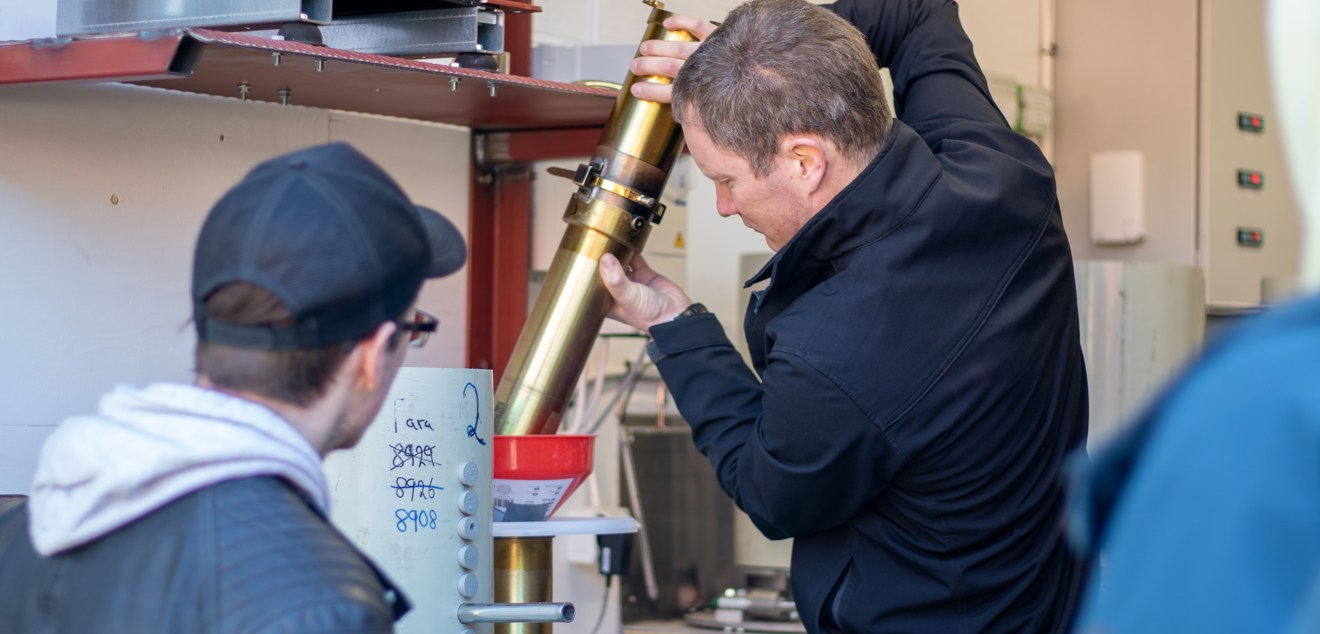Efficient drying and storage of crops

About the project
Project goals
The aim of the project is to develop innovative, tailored and energy-efficient drying processes. The basis for these drying processes is developed at lab and pilot scales and then verified at full scale. RISE, together with Swedish export-oriented drying manufacturers, grain traders, primary producers and advisors are spearheading a project that aims to develop innovative systems for increasing the energy efficiency, capacity and user-friendliness in both new and existing drying facilities.
Technologies for drying and storing grains are an important area of development globally when it comes to reducing energy consumption, dry matter and quality losses and to avoid mold toxins in our most important staple foods. Both Swedish and international studies have shown that carcinogenic mold toxins caused by too slow drying processes are still common in grains. However, the scope for investment is limited as drying facilities are only used for a few months each year. They are used for drying everything from rapeseed to beans, despite having been primarily developed for the most common grains such as wheat, barley, etc. In this area, innovations are needed to easily adapt a dryer to all types of grains and quality requirements, while having a lower energy consumption and less of an impact on the climate.
For Swedish manufacturers to remain competitive, they need to be at the forefront of technology and deliver resource-efficient, low-impact, user-friendly and high-capacity dryers.
Test environment at Naturbruksskolan Uddetorp
At Naturbruksskolan Uddetorp, staff from RISE have conducted tests in a lab dryer housed in a container. During the project, they have been able to follow the drying process in the lab dryer, where factors such as temperature and airflow are continuously measured. They have dried wheat and corn, amongst others. In connection with Uddetorp's regular grain dryer, the project has also built a pilot dryer on a scale of 1:4 in order to carry out tests on a larger scale. The hope is that in 2023, they can verify the tests previously carried out in the lab dryer.
In addition to carrying out tests, the project also provides information on drying to students at the school. High school students have performed laboratory work in the lab under the guidance of Hugo Westlin, technical agronomist and project manager at RISE, Agriculture and Food. Students at Biologiska yrkeshögskolan have also taken part of the information from the tests carried out in the project.
Project summary
PROJECT NAME
Efficient drying and storage of crops
STATUS
Ongoing
OUR ROLE IN THE PROJECT
Test environment
PROJECT START
2021-02-01
DURATION
2,5 years
PARTNERS
AAK
Akron-Maskiner
Tornum
Lantmännen
Infrasonik
Ircon drying solutions
Senseair
COORDINATOR
RISE, Research institute of Sweden
REFERENCE GROUP
Livsmedelsverket
Jordbruksverket
Sveriges Frö- och Oljeväxtodlare